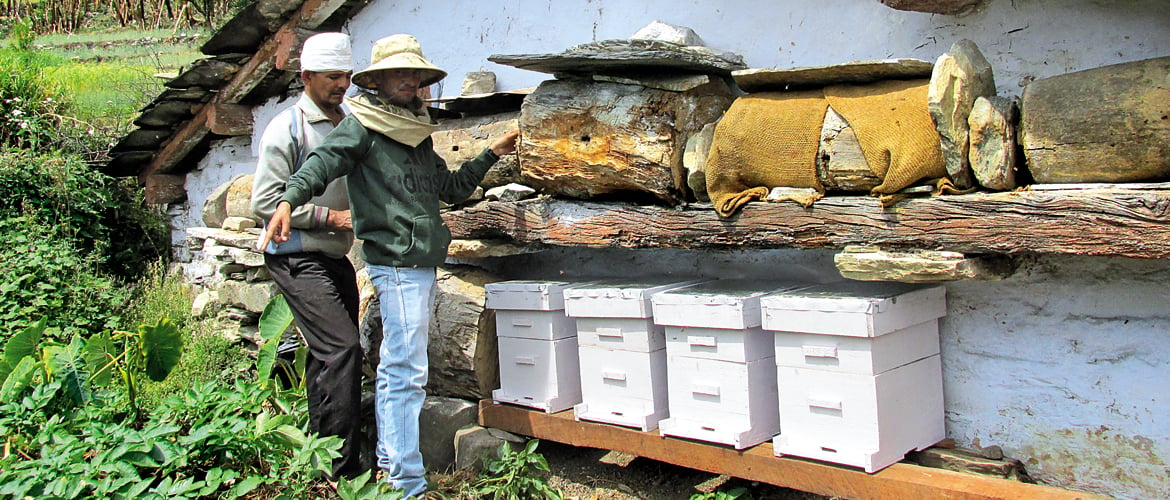One of the biggest problems plaguing Uttarakhand’s rural areas is urban migration, driven primarily by poor returns
Now, the Devalsari Environment Protection and Technology Development Society is attempting to create alternative means of livelihood for the locals through eco-tourism and beekeeping, while also promoting conservation practices. The main aim is of the Society is “to promote village-linked livelihoods while conserving the area's natural resources and retaining its traditional and cultural practices”. The area, with altitudes ranging from 1,200m to 3,000m, is blessed with beautiful forests, housing a variety of flora, including chir, deodar, oak and rhododendron, as well as around 120 species of butterfly like the siren, brown argus, jewel fivering, lepcha bushbrown, stately nawab, western courtier, fawn hairstreak and the albocerulean. Devalsari is also home to animals that include the Himalayan black bear and the red giant flying squirrel, and a delightful range of birds like chukor partridge, striated laughing thrush, spot-winged grosbeak, black-faced warbler, whiskered yuhina, golden bush robin, fire-tailed sunbird and the fire-breasted flowerpecker, etc.
The society organises treks in the region with the help of locals who have been trained as guides by the Titli Trust. The most popular is the trek to Nag Tibba, the highest peak in the area at 3,048m, located approximately 10 kilometers from Bangsil. There are also nature trails for birding and butterfly enthusiasts. The society also offers cultural tours to nearby villages so that tourists can experience the hospitality of the Jaunpuris and their food, festivals and day-to- day life. The two main draws here are the locals’ celebration of Baisakhi in April and that of Buddhi Bagwali (Old Deepawali), celebrated one month after Deepawali. To aid the cause of eco-tourism, four homestays were set up in Mauldhar village, and plans are afoot to expand the initiative to nine more villages.
On the conservation front, locals have been educated on the need to preserve the Himalayan riverine system. Villagers are dissuaded from fishing in streams using bleaching powder and electricity, and also from hunting wild animals that encroach on their farms.
The society also promotes beekeeping through workshops on the rearing of bees and design of beehives. This will not only lead to an alternative means of livelihood, honey production, but also conserve the native bee species of the Uttarakhand hills, Apis cerana indica, thereby helping crop production as well. There are up to four wall beehives in each home, and each one can produce 12kg of honey every year, says Arun Prasad, the society’s director, making it a lucrative venture.
For more about the society and its eco-tourism offerings, see devalsari.org. Or call +91-8650645385, 9557613851.
Devalsari Environment Protection and Technology Development Society
Uttarakhand
India


